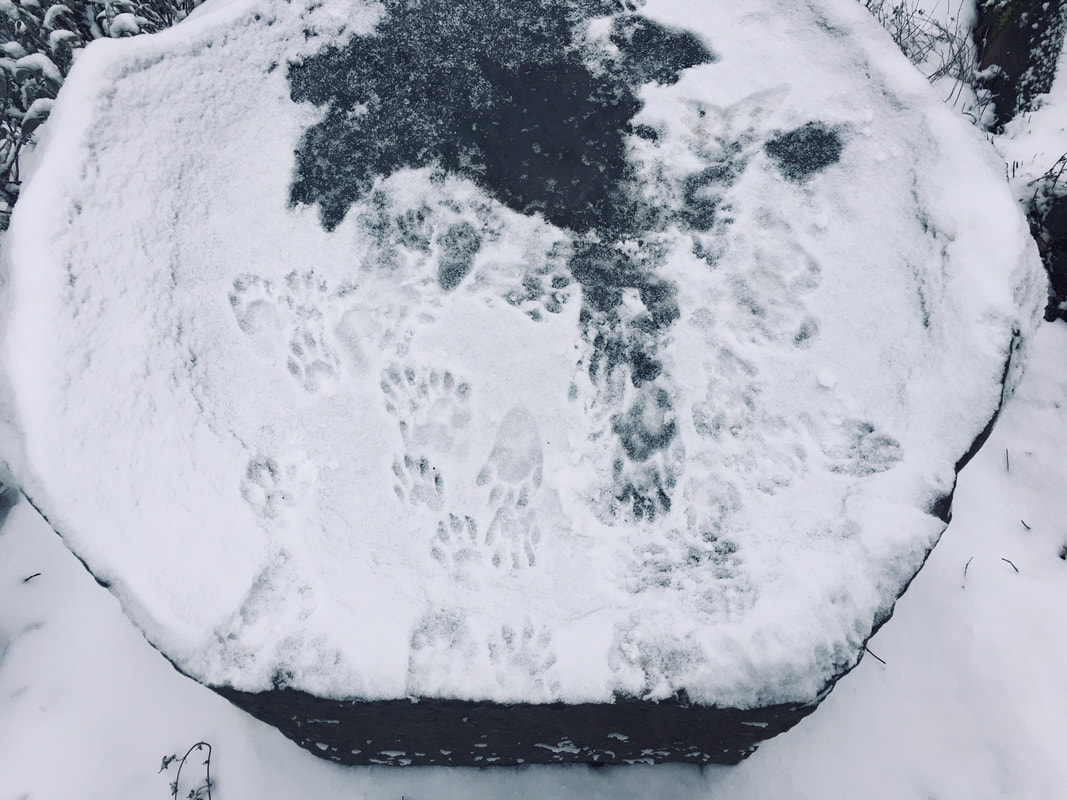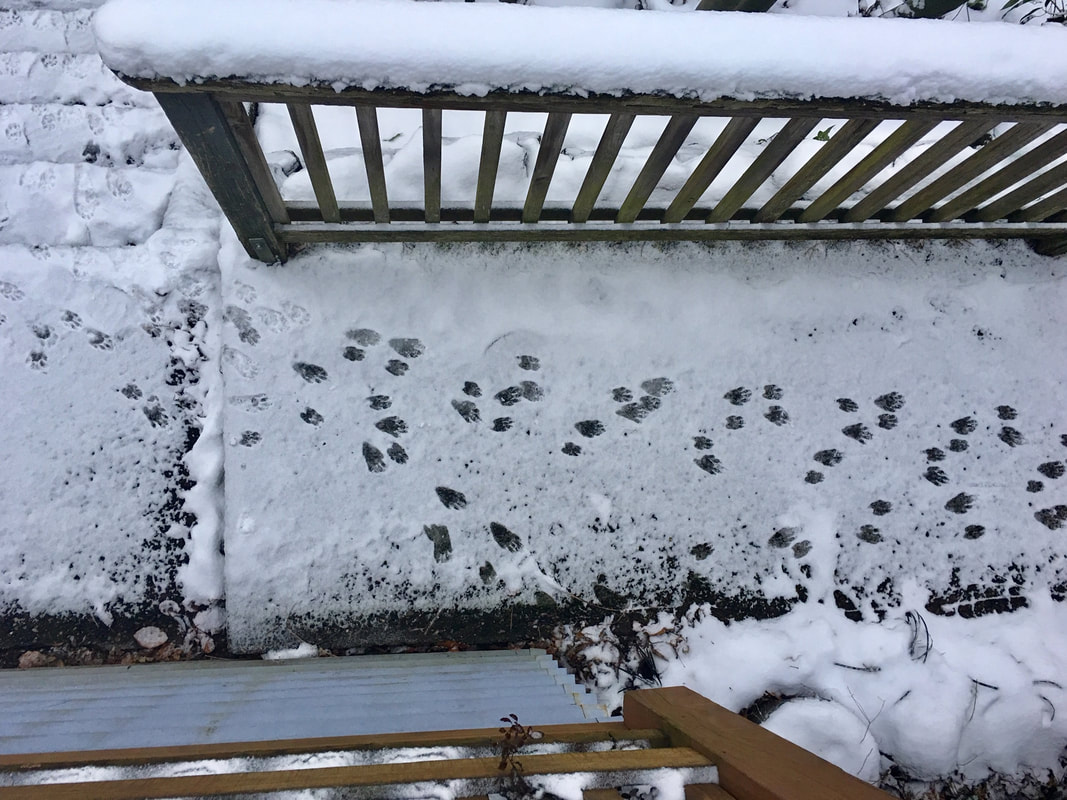Do you ever wonder about how these wild animals survive in the city?
First, why is this animal called raccoon (wikipedia):
The word "raccoon" was adopted into English from the native Powhatan term, as used in the Colony of Virginia. It was recorded on John Smith's list of Powhatan words as aroughcun, and on that of William Strachey as arathkone. It has also been identified as a reflex of a Proto-Algonquian root *ahrah-koon-em, meaning "[the] one who rubs, scrubs and scratches with its hands".
Hill Raccoons are more than Bandits, 10/15 Brendan McGarry: REPOST from CHS blog
"Despite their nocturnal tendencies, we know they are around, scampering across intersections when we come home late at night or when they blunder beneath our tires. The main reason they’ve become so common in our urban world is that they’re incredibly intelligent and this is very adaptive for the variety of nuances they face in the city. Their common name is merely an english settler mangled Powhatan word for the animal; their latin binomial is telling. The genus designates them as before, “Pro,” dog, “cyon,” intimating that raccoons are indeed carnivores (though more closely related to bears than dogs). The second notes a common behavior, as lotor literally means “washer,” and raccoons are well known for their habit of “washing” their food using dextrous forelimbs.
Unlike us, raccoons don’t have very good long distance vision but instead rely on a suite of other senses. Based on their anatomy, raccoons do see better than us at night, because they possess tapetum lucida, tissues behind their retina contributing to superior light gathering, which many mammals have. You’ve seen this before in your dog or cat when at night a beam of light reflects in their eyes. Despite this nocturnal augmentation, both a sense of smell and hearing, much more acute than ours top vision in importance to raccoons. However, one trumps them all, and that’s their sense of touch.
Though raccoons don’t have opposable thumbs on their forepaws like primates, they are only slightly less dextrous. raccoons have one of the most highly developed senses of touch for a vertebrate, with an inordinate amount of brain power devoted to the tactile. Their habit of “washing” is not related to a desire for clean food but instead related to the fact that they can feel more when wetting their paws, softening their footpads. I’ve routinely seen raccoons search about in the water with their paws (they love frogs, fish, clams, and all manner of invertebrates that habituate them to habitats with nearby water), and upon finding something, manipulate it throughly as a blindfolded person would an object handed to them for inspection. This is a prime way they see the world, so different than how most of us see things."
Thanks for your interest in our backyard visitors.
Cheers, and enjoy the wild side.



 RSS Feed
RSS Feed
